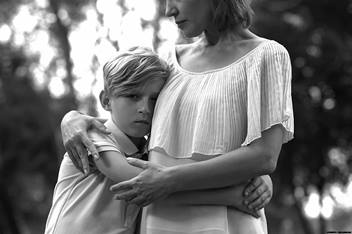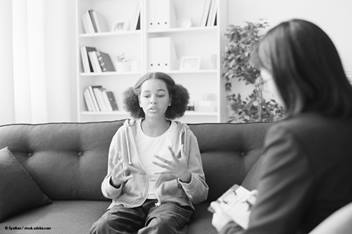Helping Very Young Children Cope after a Trauma

Most children do not have long-term emotional problems after a serious injury or traumatic event. However, behavior changes may occur while their brain tries to process what has happened. Support from caregivers is very important. You may also see behavior changes in other children who have seen or been affected by your child’s injury or trauma.
Types of Behavior Changes
You should seek support when your child’s behaviors affect daily activity or happen for longer than one month.
These are some behaviors to look for:
- Hard to comfort: clingy, cry more than usual, more easily frustrated
- Increased fear of being away from important people
- More withdrawn: quiet, hard to engage in play or contact
- Less happy: “flat” facial expression, worried or super-alert facial expression
- More aggressive with others: hitting, biting, pushing
- Changes in daily functions: trouble sleeping, eating
- Act out or replay scary events, especially during play
- Regress: thumb sucking, have accidents after being toilet trained
What to Do After a Trauma
- Go back to a regular schedule at home. Have a structured daily routine to reduce fears and worries.
- Give your child the words to explain how they feel, like “You looked scared just now” or “You are mad that….” This helps a young child label and identify their feelings, even if they are not developed enough to talk. Ignoring feelings do not make them go away. When you teach your child the words to describe their feelings, it helps them make sense of these emotions.
- Offer your child safe ways to express their feelings, like drawing pictures, pretend play or telling their own story. These are great ways for young children to express and work through hard feelings. Read children’s books that deal with the kinds of things your child is going through. These can also be very helpful.
- Be patient and calm when your child is clingy, whiny or violent. Offer extra hugs and cuddles for them.
- For a child who is whiny, talk to them in the voice you would like them to use instead – “I cannot understand you. Can you use your strong voice?”
- For a child who is violent, set clear limits for their age – “No hitting. Hitting hurts.” Then redirect the child to another activity – “Thomas is playing with the truck. Here is a car for you to play with.”
- Answer your child’s questions according to their level of understanding. Keep details simple and answer in simple terms, as well as you can. “Yes, a bad thing has happened, but we are keeping you safe.”
- Respond to their need for attention, comfort and support. This will help them feel safer, sooner. “I am here for you, and I will take care of you. I love you very much.”
- Tune in to your own feelings and get the support you need to cope. Managing your own emotions provides a sense of calm. It lets your child know that you are in control, which is the most powerful way to let them know they are safe.
Hospital Resources
The Trauma Social Workers and Pediatric Psychologists are part of your child’s medical team during their hospital stay. Social Work and Psychology meet often with patients and families after trauma or an injury. If you have concerns about your child’s or family’s adjustment to one of these, tell the medical staff and ask them to contact Social Work.
After your child is discharged from the hospital, you can contact:
- Trauma Team Social Workers at 614-722-6300.
- Psychology at 614-722-4700, Monday through Friday, during normal business hours.
- For an emergency, even after business hours, you can contact the Nationwide Children’s Hospital Behavioral Crisis line at 614-722-1800.
HH-IV-213 ©2021, Nationwide Children’s Hospital



